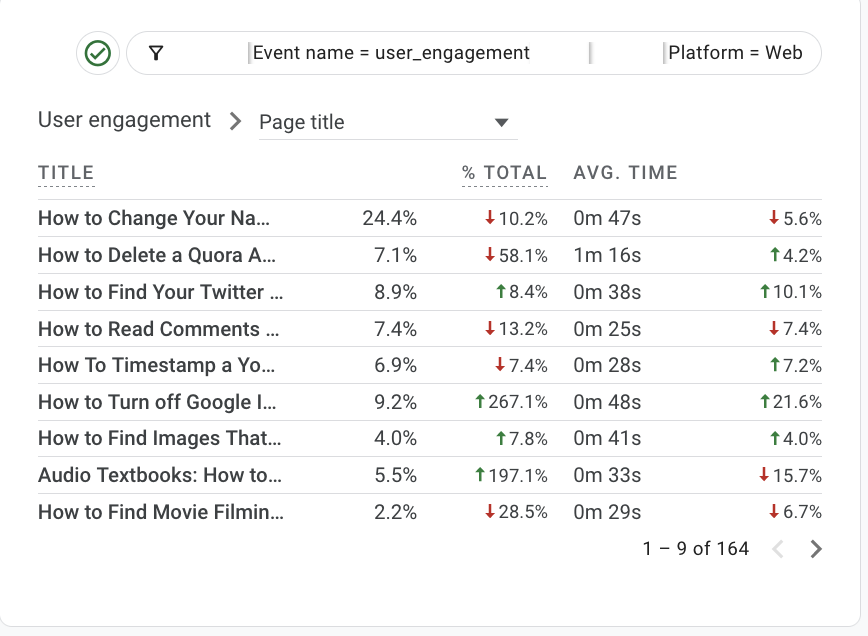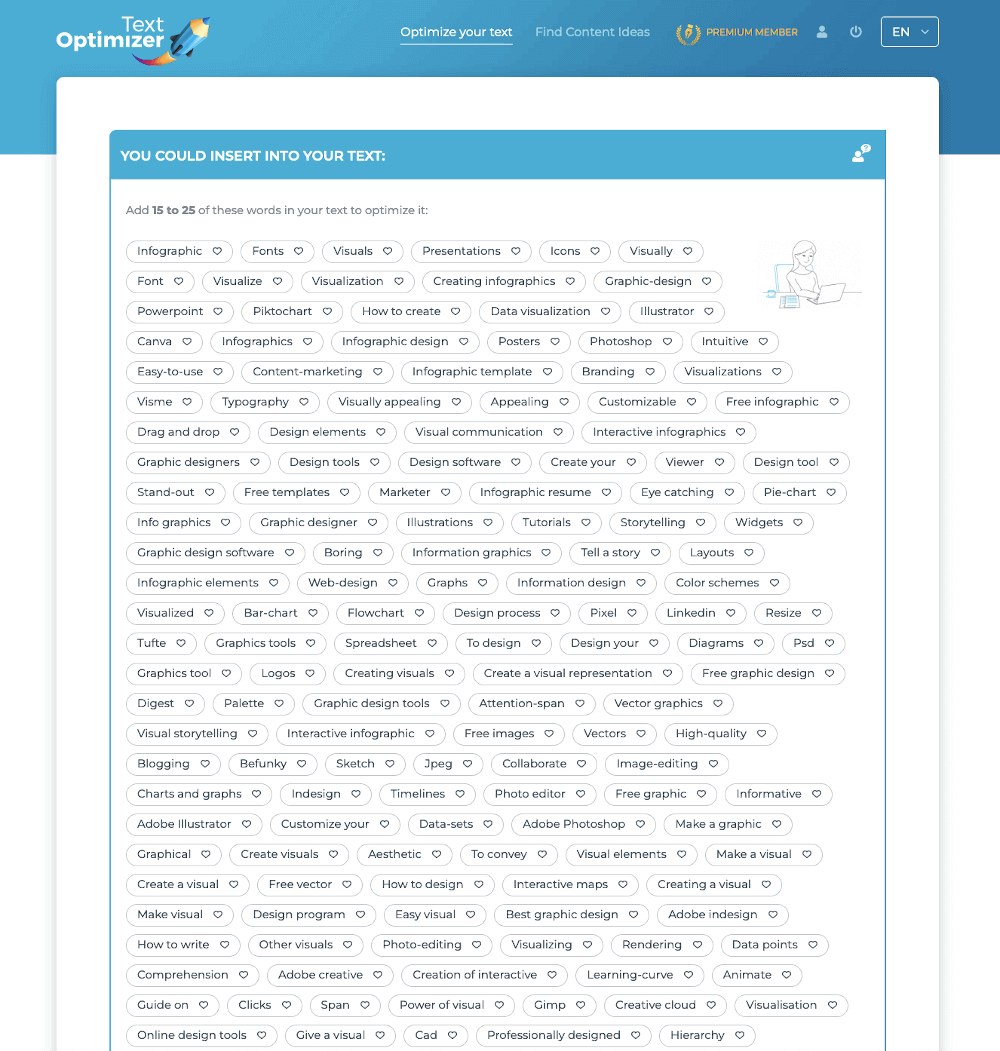
It’s one of the most common questions I hear small business founders and marketers ask. The answer, though simple, might not be that apparent to you if you’re looking at it from a traditional marketing perspective.
Launching, managing, tracking, and growing a company blog – large or small – takes effort and dedicated resources. But there’s a huge value in that when you do it right.
Becoming a content destination adds tremendous value to your web presence. I highlight below some of the requirements and reasons to have a great blog.
People Are Supposed to Read Your Content
The whole point of creating a blog is to attract people to read your content. But are they? And if they aren’t, does that mean you’re doing it wrong and wasting your time?
In order to gauge this, you have to answer this question first: How much time do people spend reading your content?
Your time on a page should average at least 30 to 45 seconds. Anything less means people are barely skimming the content and moving on quickly.
This could be because the content is subpar, poorly formatted, or – possibly the worst offense of all – overly self-promotional.
If your blog content is all about you and your company, your audience won’t want to spend their valuable time reading it.
You should be striving to add value to your niche with each article you publish.
This information can be found using your GA4 dashboard (inside the “Events” report):

Mind that time-on-site may dramatically change based on the traffic acquisition channel. People coming from social media may be in a hurry to go back to their browsing feeds.
But people coming from search are more likely to read carefully because that’s exactly the answer they were looking for when searching Google.
Great Editorial Content Owns Organic Search
A strong blog can draw hundreds of thousands or even millions of visitors to your website each month. In fact, I’d be hard-pressed to name another cost-effective strategy that has the reach and consistency to drive this volume of top-of-the-funnel, yet still relevant traffic.
Of course, you can do this with paid channels, but you’re going to pay out the nose, and it’s an ad. That’s no fun. Becoming a content destination might be the single best organic search strategy now and in the future.
Google is the king of the world they literally have the highest market cap of any company on the planet as of the date this article was written. Just about any company relies on its precious referral traffic.
And, we’ve all tried to find a way to increase that traffic, sometimes through any means necessary. Text Optimizer is a solid tool to help you improve content quality. It helps you understand the context behind each search query, allowing you to create content that meets your audience’s needs:

Google is constantly challenged to give its users the best possible experience. That’s why they want to rank the best content first. Great pages contribute to a website’s overall ranking credibility.
Google looks at multiple content quality factors including original content quality, page experience, trustworthiness, and even page security (they prefer HTTPS).
They look at content validation factors like who wrote the content (yep, the people creating your content matter) and who linked to the content.
Subject Matter Experts Amplify
When creating a content destination to attract and retain your consumer audience (which can be B2B as well, of course), you should strongly consider the voice behind that content.
Using internal experts is great, and should be part of your strategy. But you can get a tremendous amount of value out of assembling a high-quality external team of contributors.
I’m not talking about low-quality guest posts. It is important to utilize skilled subject matter experts when executing your thoughtful content strategy.
You can transform your brand by leveraging experts to educate your audience. So, I’m talking about aligning yourself with trusted content producers.
It is also a good idea to become a niche authority and contribute to your own blog. Rand Fishkin is a great example of a leader who never stops making their company blog content better.
Another great example is Hari Ravichandran. He keeps investing time in writing books and doing interviews on podcasts and videos. These represent his company’s value proposition and raise his visibility as a thought leader.
Content Destination Results
When you work on becoming a content destination, the result will be:
- Better content engagement
- More social shares and followers
- Earned links and increased rankings
And finally, your brand will become to be regarded as a legitimate content destination / brand publisher, earning the attention of not just your audience but also the media at large.
The digital age has redefined how businesses approach marketing and outreach. In this dynamic landscape, content is not just the king but the entire kingdom.
Small businesses and enterprises alike stand to gain significantly by establishing themselves as a “content destination”.
In essence, becoming a content destination is more than just a marketing strategy; it’s a commitment to excellence and a mission to be at the forefront of thought leadership within your industry.
The question now is not if you should become a content destination but rather when you’ll start.
Unleashing Proven Strategies
This is just one of the Proven Content Strategies our BizSugar Mastermind members are sharing for our Unleashing Proven Strategies Challenge. Ann Smarty is a member and was our guest expert for the Forming Strategic Partnerships and Alliances TipTalk text chat.
Ann is also our Webinar expert on September 20, 2023 at noon Central for How to Create Linkable Content to Attract Backlinks. Register here now.

he article effectively underscores the importance of becoming a content destination and outlines practical steps to achieve this goal.